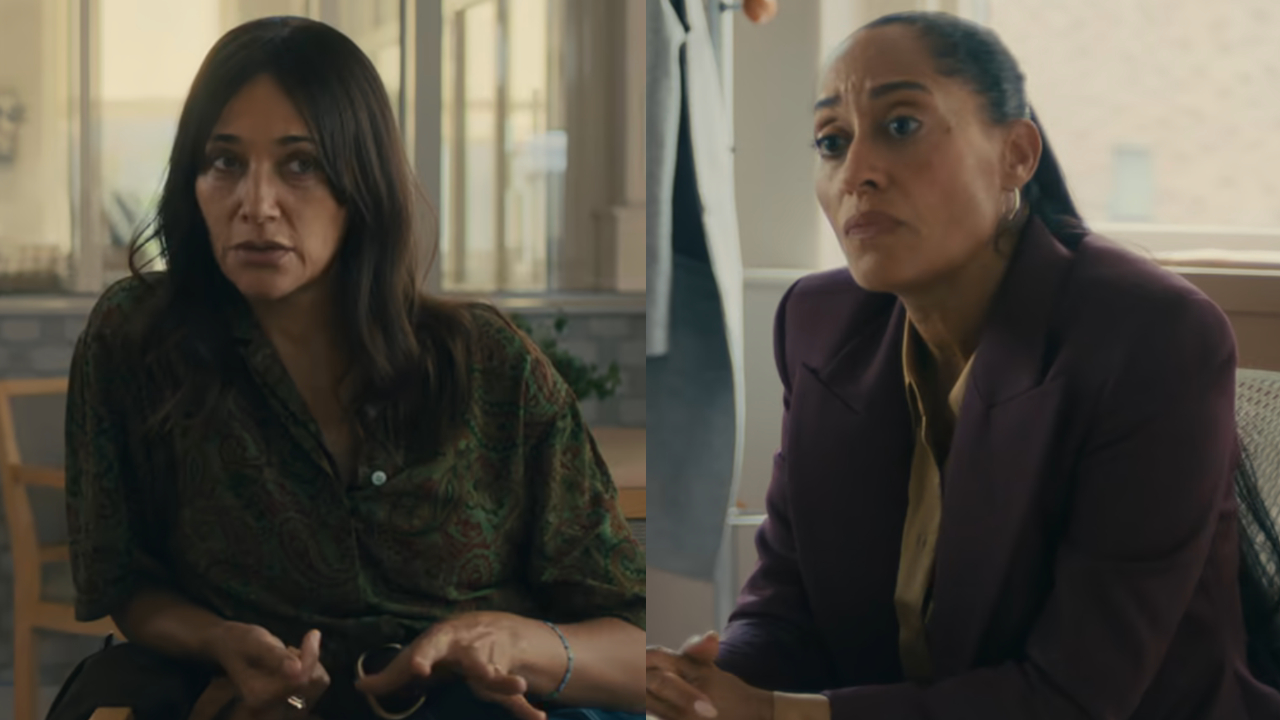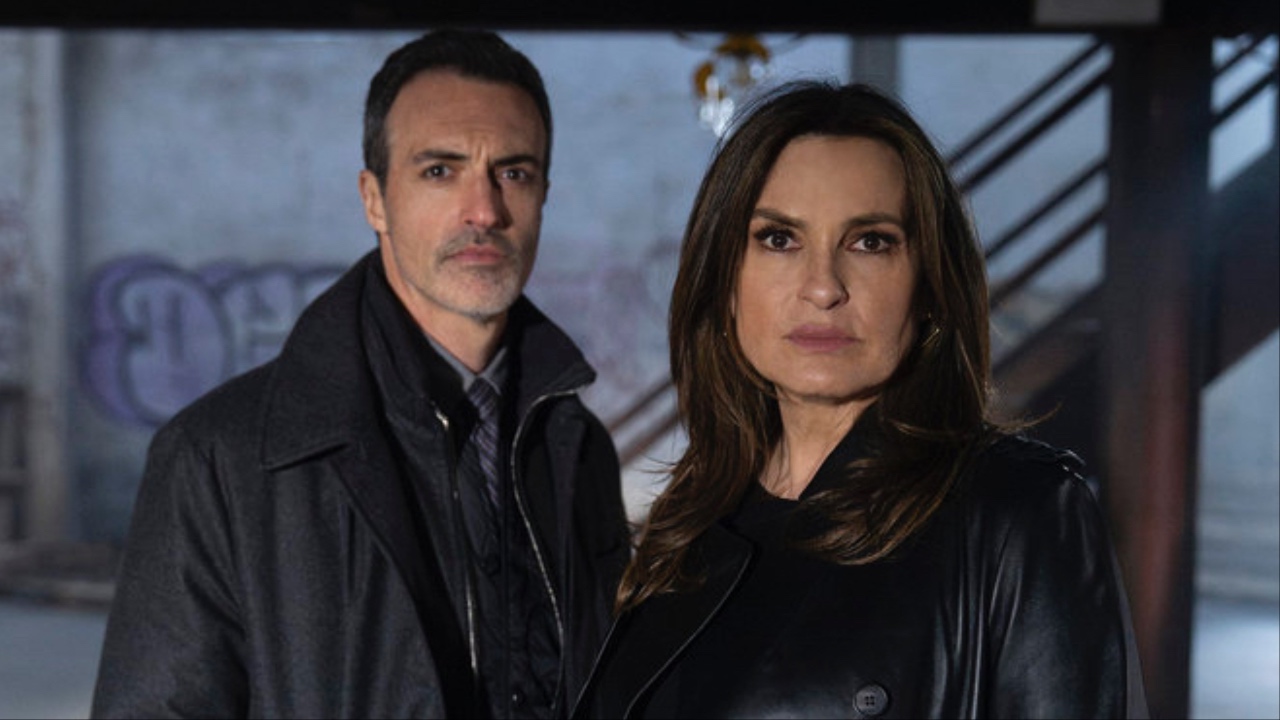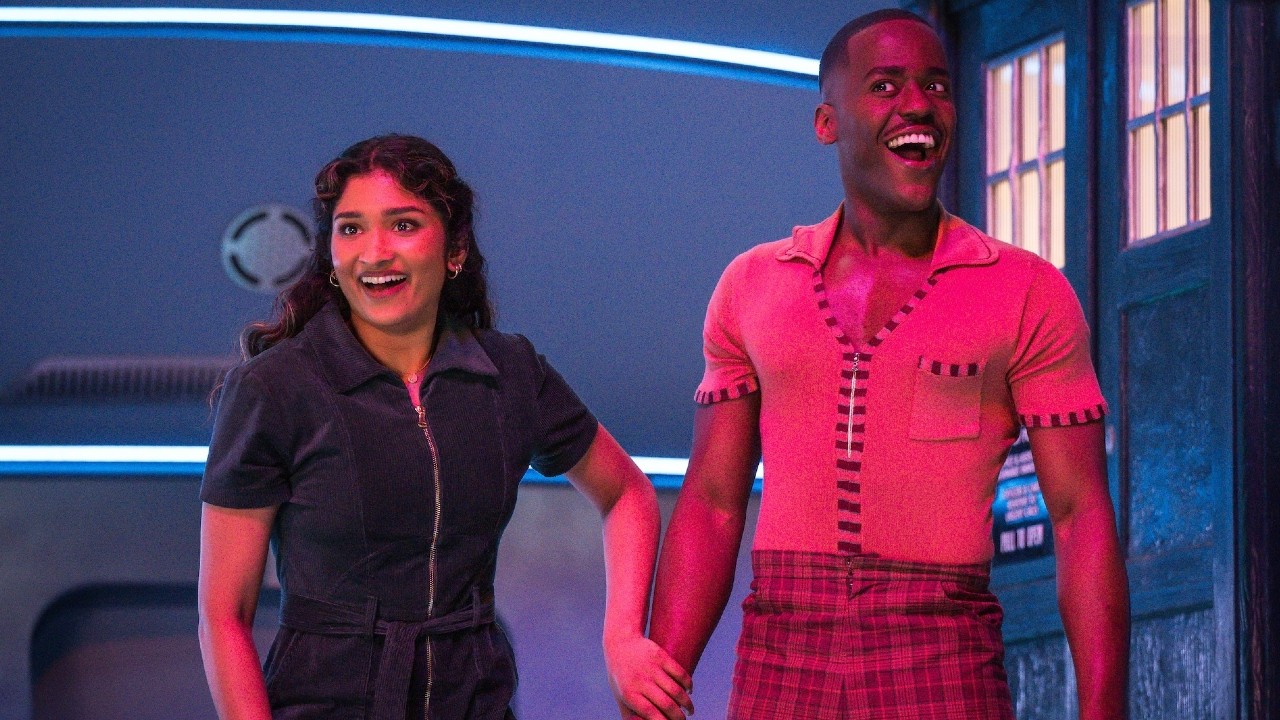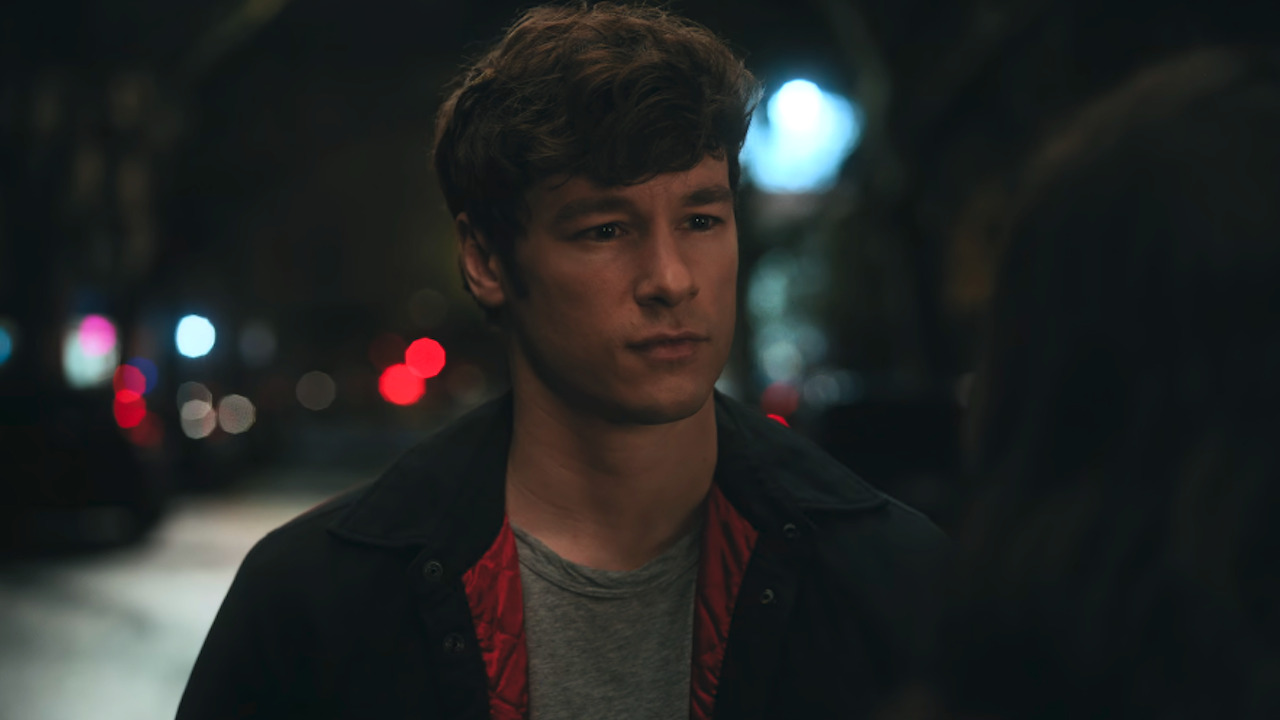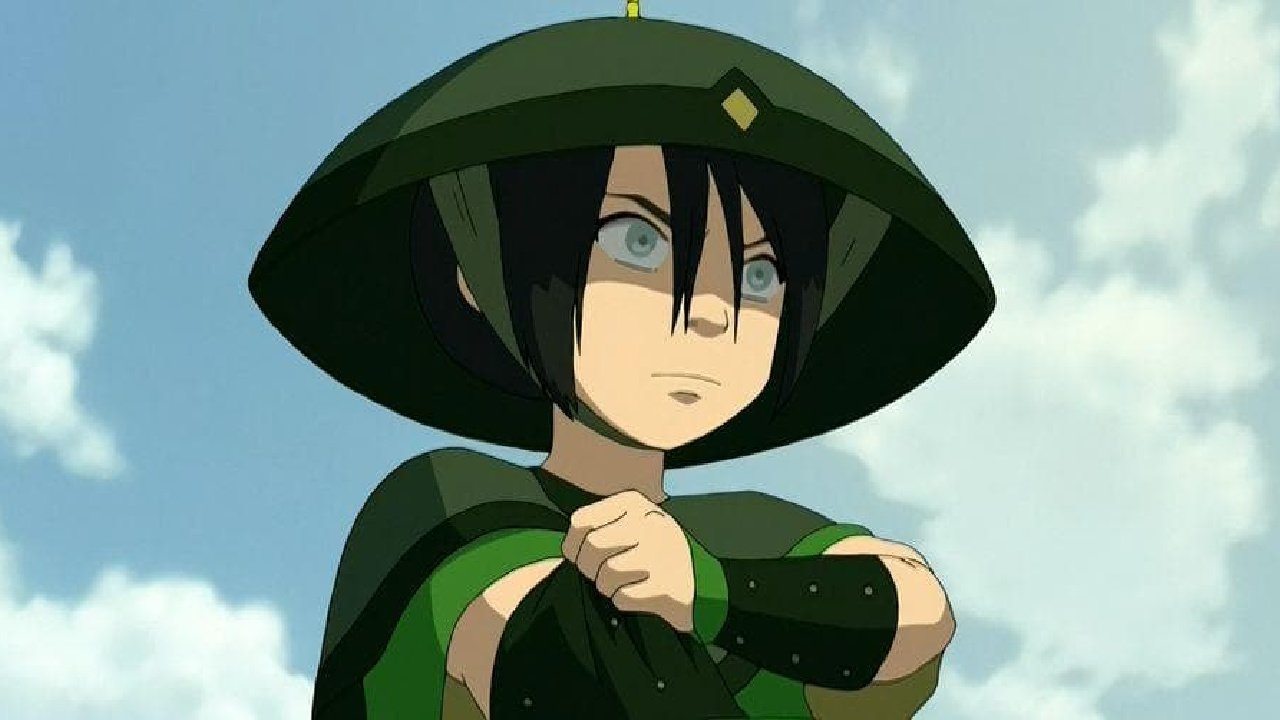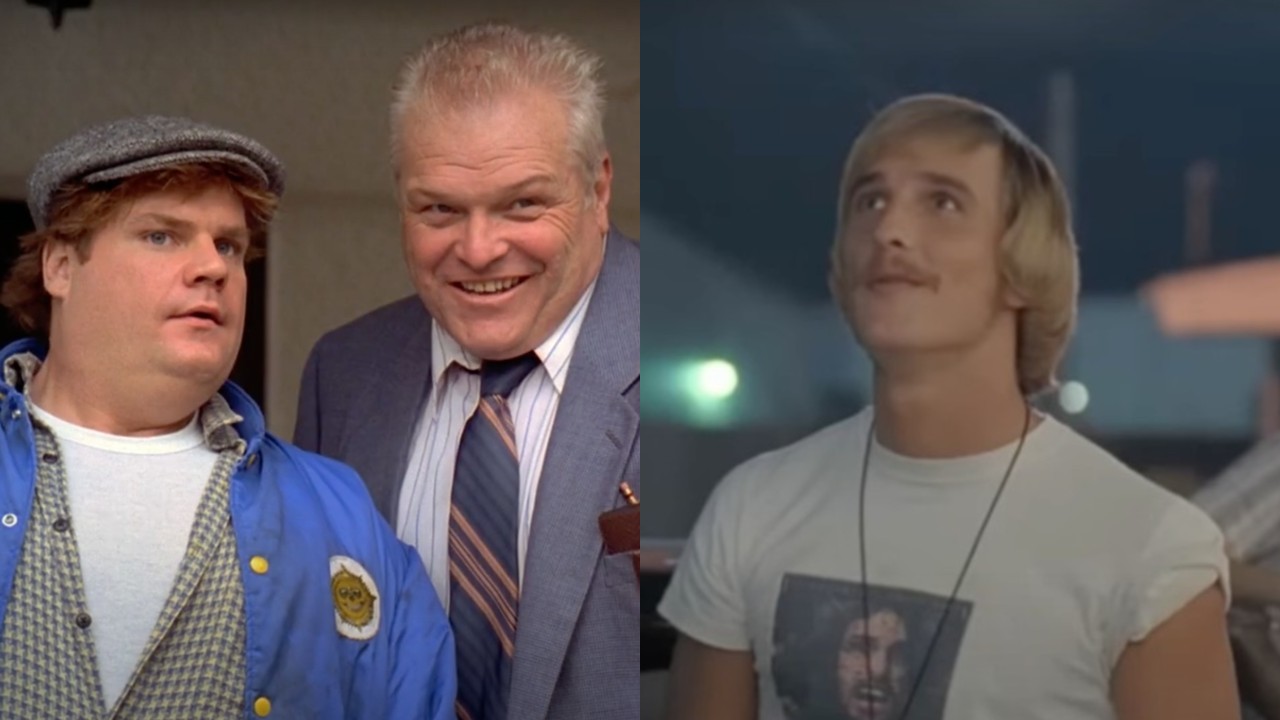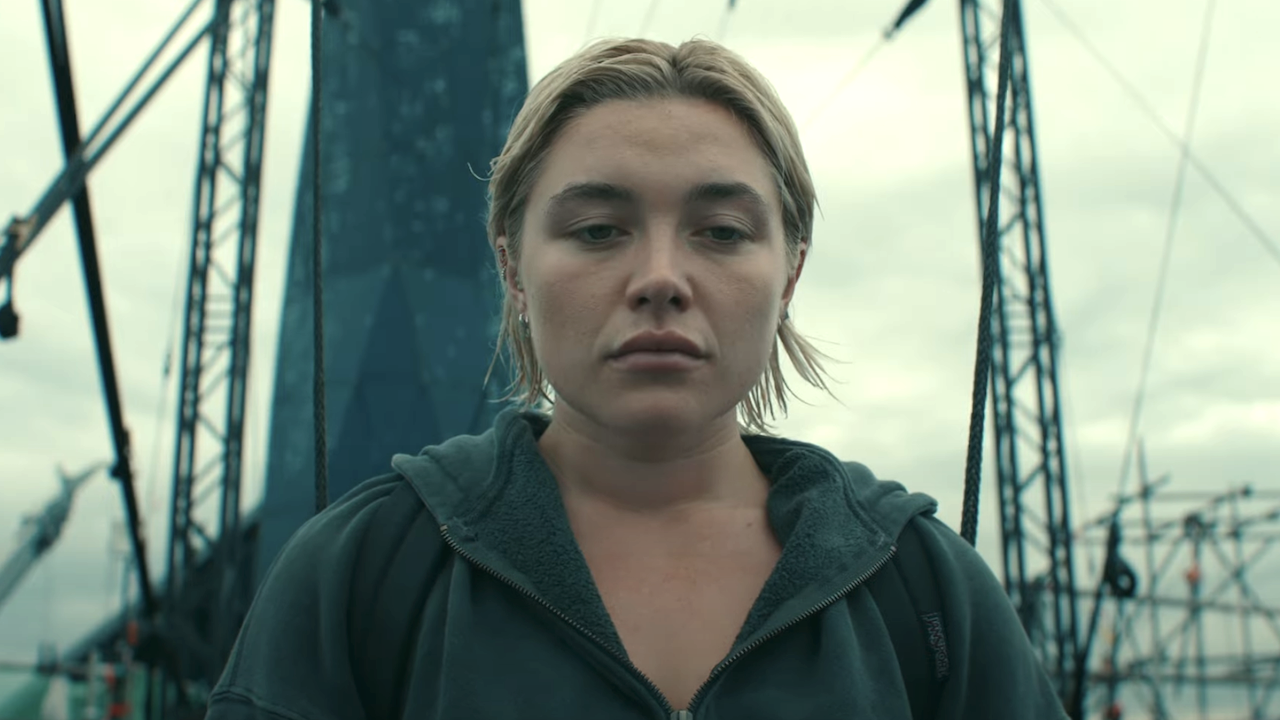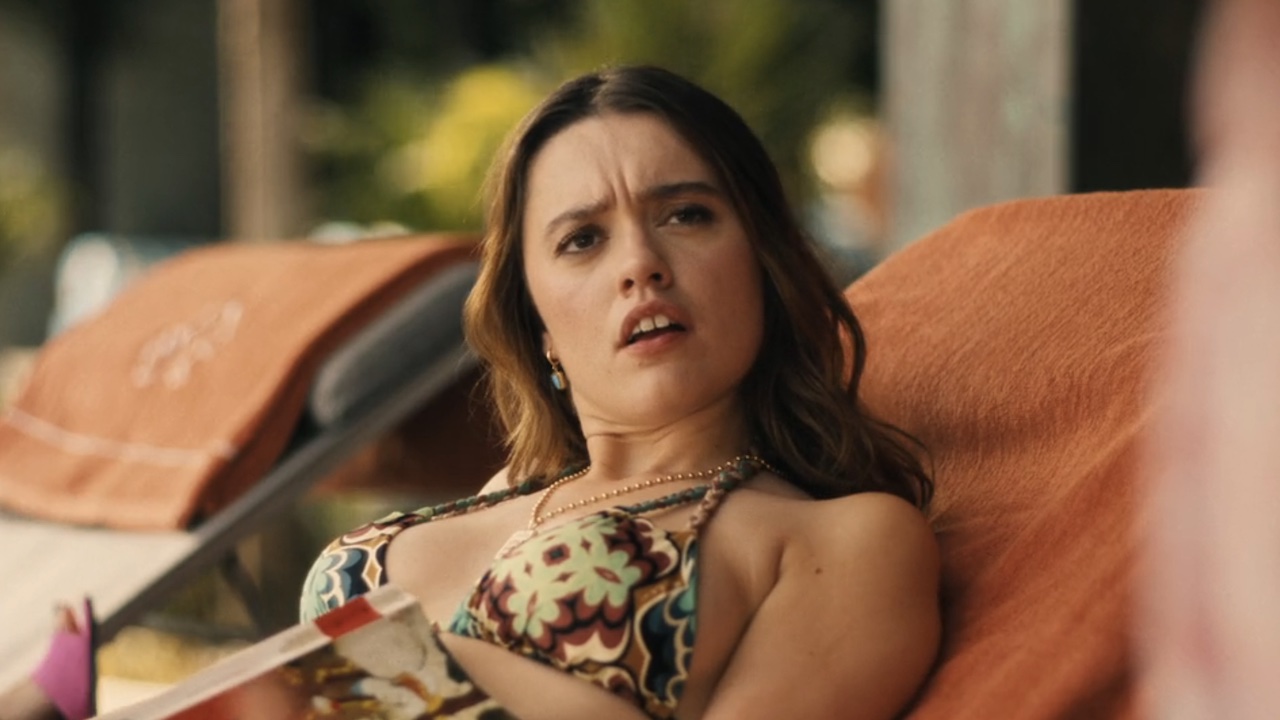G.I. Joe And Transformers Crossover? The Producer Tells Us How It Could Happen
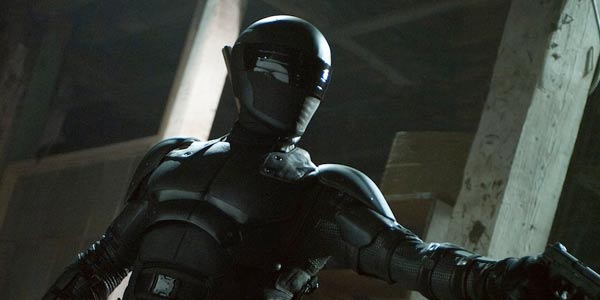
Part of the joy of playing with toys and action figures as a kid was having characters cross pop culture universes. X-Wing pilot Luke Skywalker fit surprisingly well in the model Batmobile I had growing up, and Spider-Man regularly teamed up with the Power Rangers to take down evil. It was a blast to stretch the boundaries of imagination beyond copyright laws and branding and figure out how two very different characters from two very different worlds would interact. So with that in mind, and considering that they’re both owned by the same companies, why not make a G.I. Joe/Transformers movie?
This past weekend I had the pleasure of sitting down with G.I. Joe: Retaliation producer Lorenzo di Bonaventura to talk about the new action-packed film hitting theaters this weekend. Check out our conversation below in which the blockbuster moviemaker talks about not only how a how a G.I. Joe/Transformers movie could come together but how a sequel gets the green light, what it means to have a star like Dwayne Johnson in your franchise, the scary gamble of pushing a film back nine months, and prioritization of “ninja stuff.”
It’s kind of a big question, but I do want to ask about the politics of sequels. When you’re dealing with big blockbuster movies, you’re dealing with hundreds of millions of dollars, but there’s also so many factors involved, like you have the box office returns of the first movie, critical reception, fan reception... I’m curious, where does the balance come down to when you’re trying to figure out when to move forward?
Well, I think on a selfish level, what you start with is what didn’t you get to do the first time and what could you do better, just on a selfish level, you know? So, you tend to focus on that first, I think. You listen to the fans, you hear the fans. I particularly listen to the fans who like things because their enthusiasm is much easier to understand why they’re, if they’re coming from a fairly positive point of view, why they’re articulating a case for something is much easier to absorb than if they’re coming from a negative point of view. That’s me, anyhow. You know, you do look at it, and you say, there’s the business side of it where you look, “Ok we need $300 million for a wide. How do we do more than that? Where did we not do well? Where did we do well? Why was that?” You sort of do that analytical thing, which I find you do it and at the end of the day, you get a lot of confusing answers from that. So, again you sort of retreat back to, “Ok, what do we think we can just do better as filmmakers?” You know, and what can we do bigger? In this case, we thought by bringing in cast, it would create a bigger experience. So, that was one of the first objectives was to bring in guys like Dwayne [Johnson] and Bruce [Willis], where suddenly that changes the complexity of the movie before we’ve done anything to the story.
And you mentioned listening to the fans. How exactly do you go about doing that?
It’s online. Thankfully, there’s so many different way, fan forums that you go into, G.I. Joe forums that I go into. You know, there’s a cautionary thing, there are so many conflicting points of view that come from the fans that if you’re not careful you sort of get lost with what you want to do, because if you’re trying to please everybody and you go, “Wait a second...” And I’ve fallen in the trap of that before. So, now I don’t do that. I read it. I listen to what’s going on and I go, “Oh, I like that. That’s smart. I get that.” So, you cherry-pick a little bit, I guess.
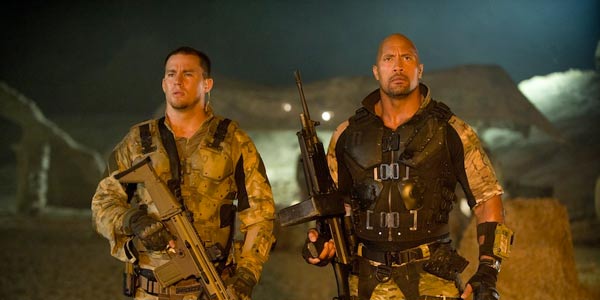
And in mentioning that you try to do what you can to make it better in the sequel, just for this film specifically, you are introducing a bunch of new people, but also keeping some continuity with the old film. How do you pick and choose?
CINEMABLEND NEWSLETTER
Your Daily Blend of Entertainment News
It’s tricky. It’s tricky. One of the things we wanted to do after the first movie is, we felt like we didn’t get to do enough ninja stuff the first time around. So, that was a big priority was how do you make a ninja story. It’s tricky to integrate it. So, we actually just said, “We’re not going to integrate it at first. We’re going to let it do that and then come together,” which is dangerous to split story lines and I think we got away with it, but it is dangerous because you’re sort of going, “What’s the motor? Which story am I supposed to be emotionally investing in as an audience member?” So, we wanted to do more ninja. So, I think we succeeded at that. You know, the idea of the President of the United States as a bad guy is such a cool idea. I’ve never seen that in a movie and it’s hard to find original bad guys. So, we thought, “That’s a go.”
And to get Jonathan Pryce back also, it’s...
Exactly. So, those two things were what really sort of locked in the decision making process and then from that point you sort of go, “So what’s the bad president plot and what’s the ninja plot,” and then Joe stared coming out of that. It was funny. There’s as many fans that love Heavy Duty as love Roadblock. There’s a warring thing. It’s sort of like Flint and Duke. It’s two decidedly different camps and so you can’t please both sides of the equation, but I think Roadblock came in part because I just loved the name. Roadblock is a great name and then you put Dwayne as Roadblock, well that’s almost like a double positive, isn’t it.
Well, that is kind of a point, I mean Dwayne Johnson has kind of earned the name, Franchise Viagra and I’m just curious, from a producer’s standpoint, it must be amazing to have a guy with that much charisma and that size also just as your action star.
It’s great, but the thing about him which I think people under-appreciate is he’s able to somehow able to remain emotionally accessible despite his size, despite his physicality, despite the danger that’s represented by a guy like that. That’s what i really like about him is that he’s also able to have a sense of humor, but even more. There’s a warmth. I mean, you see him with his daughters. You see him at home. There’s a naturalness to that which makes you route for him on a different level than you might otherwise.
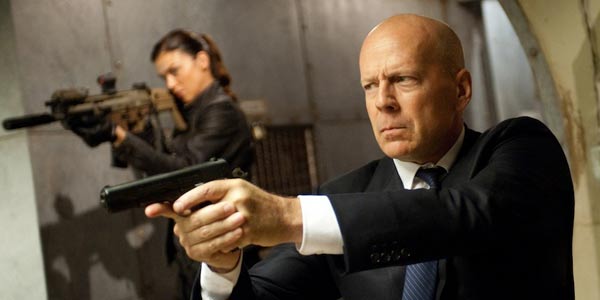
I do have to ask about the push back, because it’s a significant thing.
And a scary thing.
And it’s a scary thing and there is kind of a stigma that comes with the idea of being pushed back. As I mentioned, I did enjoy the film. I thought it was really fun, but I guess my question is, what is the value of 3D versus kind of that...
Good question. I think there’s two things. Creatively, I think the movie is better with it. The 3D experience is incredible. 2D is really fun and it’s great, but what you can do now in 3D, when you do it well, which I think we did, you can create a more, that famous word now that everyone loves, immersive experience. I always think those terms are kind of bullshit. Come on, really, is that what it is? I think you get to participate with the screen in a way. That’s how I would describe it, rather than literally. So, you create a more... I love that moment when the missile, the first missile comes. It’s not even on the screen and that’s like, “Whoa, that’s cool,” and so, you’re breaking the boundaries of the wall and I think that just adds another element. So, you see it in 2D, it’s really fun. You see it in 3D, you get this new element.
So, as filmmakers, it was great that the studio... When you first hear you’re being pushed back, you go, “Well, what does that mean? Does that mean you don’t like the movie? Does that mean despite telling us you like it, you don’t like it? Are we going to get the stigma?” All those things. So, emotionally, the first moment is like, “Uh!” Then, I guess probably because I’ve been around for a while, I sort of go, “So, wait a second. They’re going to be willing to invest 10, 12, 14 million dollars more into the movie. Ok, that sounds pretty good.” You know? And then the unknown becomes what’s your next release date. Is it going to be a good date or not. It could be a terrible date in which case, you moved to the worst place. I think the date turned out. It looks to me like it’s going to be a good date. There’s no direct competition to what we’re doing exactly and it feels like there’s actually kind of a window for it. So, we benefited from it We’ll see if I feel that way on Saturday morning. But yeah, I think at the end of the day, it turned out a good thing for us.
And I do want to ask about the release date, but I’m curious, why was the original choice not to film it in 3D?
Because there was not enough time. We talked about 3D, but they wanted it for the June release date and the experience I’d had on Transformers told me that we were not prepared for it. And also with Jon, he never shot a big action picture and so to then saddle him with 3D cameras and the demands on top of that. We could have really collapsed. So, with Paramount, we made the decision not to do it. So, it wasn’t... We sort of thought about its visualization as 3D, because we always sort of did that. I think that’s one of the reasons it’s converted so well.

To get back to talking about the release date, the idea of a March action film, ever since 300 dropped...
How about The Matrix?
That’s a good point! And you had The Hunger Games, shattering records. It seems like the summer blockbuster season is no longer just the summer. It’s starting to expand into other areas. It’s starting to get further in the year. Do you think it could get to a point where the entire calendar is just open, because from a competition standpoint, if you’re not just limiting yourself to those few months...
Well, I don’t know. I’m not sure. March is always great because of spring break. So, it’s a form of vacation time period. Families are out. College students are out. There’s a lot of people who have time.
But even with May, you still have kids at school.
Yeah, there’s no question. I don’t know. The answer is every time we make a decision for years and years and years, nobody goes on Labor Day really. Why not? Maybe that will turn around some day. You never know. And 15 years ago, Memorial Day was the day when everybody launched on and then that kind of went away and now it’s coming back.
Just in terms of kind of looking at G.I. Joe as a franchise, one thing that’s great about this film is there really is throwback to the cartoons and the comics. You see the realization of the tank and it’s just amazing. But at the same time, you don’t have, for example, the theme song from the show. So, I’m just curious, where do you draw that line?
You feel your way through it. I don’t think there’s any formula to it. You try to find that kind of balance in it, which is there’s a familiar, you want to draw on what is familiar, but if you did it exactly the way the show was, as much as some fans would tell you should do it exactly the same way, if they saw it the exact same way now, they’d go, “Well, that’s kind of old-fashioned.” So, how do you evolve things forward is one of the drills and the other is alright, how many new things should we introduce and how many things should we hold on to? So, you kind of just, sort of, I don’t know. It’s like making a smoothie or something, I guess. You sort of go, “Alright, that feels like the right proportion,” but you don’t know.
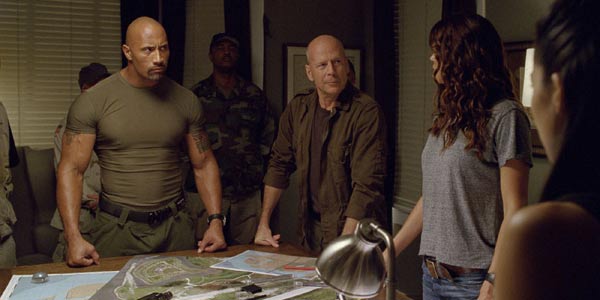
Are you already looking forward to the future? Are you looking at the pieces that you have and seeing how they can fit?
I, as a rule, don’t ever look ahead to the next movie until the first one is done, because it’s hard to make the first one good enough or the second one good enough, in this case. So the idea that I could spend a lot of time thinking about something else until you’ve got this one right. On the one hand I think it’s kind of arrogant to presume you’re going to be successful, but more specifically, it’s, you just don’t have that much creative bandwidth going on around you and what’ll be interesting is when we see it released and we all hope it’s successful and hopefully we get to a third movie, but I think things change after making a movie where you go like... I feel some about certain things and certain characters right now in a certain way. Three or four weeks from now, I might feel slightly different and three months from now, I am going to feel different. Which ones am I really going to hold onto and which elements am I going to really hold onto and it’s sort out there, after the fact, where you go, “Well, that really is...” You’re not caught up in the moment. That’s the thing that really stood out and had resonance. I wasn’t... What’s interesting is the scenes, the domestic scenes or the buddy scenes between Channing and Dwayne. I wouldn’t have said before making that movie that having that sort of almost intimate buddy moment was really part of this franchise. Now I’d say to you, “I think we could do a lot more of it.” You know? Now, will I feel the same way a few months from now? Probably. But that’s all part of the learning process.
Once again, getting back to the evolution of the blockbuster movie franchise, one of the things that we are seeing a lot of right now, and it’s in great deal due to The Avengers and The Expendables is kind of the idea of both continuity explosion, like the idea of creating a larger universe and also just creating a team and I’m just curious, what’s your perspective on that personally and is it something you could see being part of future projects you’re working on?
In terms of Joe or just in...
Well, in terms of Joe, for example like G.I. Joe and Transformers both happen to be Hasbro, Paramount and you.
I guess it’s possible. I don’t know. I think I probably at this moment, I resist it. I don’t know necessarily why, but I just think there’s so much that’s so rich in the mythologies that I don’t think they need to draw from the other. I think, I didn’t rule it out for me and I think those things have somehow for me, sort of in the past, they made me feel like a little bit cynical exercises in just drawing money out of something. It’s not to say you couldn’t do it well, but both these properties have such rich mythologies with so many characters, that you could go a lot of movies before you start running out of ideas of what to do. But it’s not to say, if we found the right... I’d hate to set out to do that, but if I heard a story where we went, “Oh my God...,” I could see a story right now about machination, machination of war and that could lead you sort of intrinsically to a Transformer.
Did I just light the fuse?
Yeah! [laughs] But I think in general, Marvel is doing it within their own universe, right? And so it doesn’t feel gimmicky in that way. I think that’s what I would really try to resist.

Eric Eisenberg is the Assistant Managing Editor at CinemaBlend. After graduating Boston University and earning a bachelor’s degree in journalism, he took a part-time job as a staff writer for CinemaBlend, and after six months was offered the opportunity to move to Los Angeles and take on a newly created West Coast Editor position. Over a decade later, he's continuing to advance his interests and expertise. In addition to conducting filmmaker interviews and contributing to the news and feature content of the site, Eric also oversees the Movie Reviews section, writes the the weekend box office report (published Sundays), and is the site's resident Stephen King expert. He has two King-related columns.
The Stars Of Black Mirror’s Common People Have Their Own Theories On What That Bleak Ending Really Means, And I Loved Seeing Them Figure It Out In Real Time
Ahead Of NBC's Law And Order Event, Reid Scott Joins The List Of Stars Who Can't Stop Raving About Mariska Hargitay: 'She's A Quarterback'

